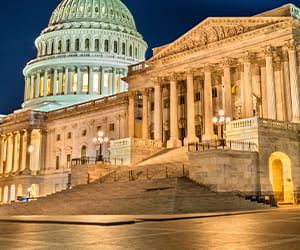New Limitations on Entertainment Expense Deductions
The Tax Cuts and Jobs Act (“TCJA” or the “Act”) severely limits the deductibility of business entertainment expenses. Under the new rules, taxpayers will want to track entertainment expenses differently than they do now. Specifically, it will be very important for taxpayers to segregate the costs of business entertainment activities from the costs of business meals. The rules apply to expenses incurred or paid after December 31, 2017. Following is a summary of the new rules.
Entertainment activities and facilities
The Act leaves in place the ability to deduct business meals subject – generally – to the existing 50% limit. However, under the TCJA, expenses for entertainment activities and entertainment facilities are no longer deductible. Dues or fees to any social, athletic, or sporting club or organization are now classified as non-deductible “facility” costs. Although facility costs are no longer deductible, there are numerous exceptions to this rule, including for the following entertainment expenses:
1. Food and beverage for employees
2. Expenses treated as compensation to an employee
3. Reimbursed expenses
4. Recreation for employees
5. Employee (stockholder, etc.) business meetings
6. Meetings of business leagues
7. Items available to the public
8. Entertainment sold to customers
9. Expenses includible in income of persons who are not employees
Business meals
Business meals are deductible, subject to the 50% limitation, provided they are not lavish or extravagant, and the taxpayer (or an employee of the taxpayer) is present when such food or beverage is furnished. The general rule for meals (i.e., the 50% deduction and lavish meal limitations) do not apply to expenses described in 2, 3, 4, 7, 8, or 9 above. Starting in 2026, the TJCA also disallows deductions for meals provided for the convenience of the employer that are excluded from the employee’s compensation as a fringe benefit. Lastly, the Act retains the other exceptions related to meals that are part of moving expenses and meals for employees working on commercial vessels.Fringe benefits
The TJCA also changed the rules that apply to the deductibility of certain fringe benefits. For example, the Act provides generally that no deduction is allowed for the cost of any qualified transportation fringe as defined in section 132(a).What does CohnReznick think?
Starting with expenses incurred (or paid) on or after January 1, 2018, the TJCA prohibits many deductions for expenses related to entertainment activities and entertainment facilities, even if the expenses are related to legitimate business activities. Additionally, the Act also prohibits the deduction for qualified transportation fringe benefits. Because the new rules affect costs that were previously deductible, taxpayers should consider changing how they track entertainment expenses.
For example, taxpayers might want to separate costs for entertainment activities and facilities from meal costs in employee expense reports. Additionally, to easily identify items that are 100% deductible, taxpayers may want to create separate accounts to track fully deductible expenses, partially deductible expenses, and non-deductible expenses. For fiscal year taxpayers, the application of these rules in a year ending after December 31, 2017 would prove difficult because the old rule would apply to the earlier part of the year and the new rule would apply to the latter part of the year.
Contact
If you have additional questions about the application of these new rules, please contact Richard Shevak, Principal, at richard.shevak@cohnreznick.com; 862-245-5029.Contact
Let’s start a conversation about your company’s strategic goals and vision for the future.
Please fill all required fields*
Please verify your information and check to see if all require fields have been filled in.

Tax Reform: The Tax Cuts and Jobs Act – What you need to know, now
Any advice contained in this communication, including attachments and enclosures, is not intended as a thorough, in-depth analysis of specific issues. Nor is it sufficient to avoid tax-related penalties. This has been prepared for information purposes and general guidance only and does not constitute legal or professional advice. You should not act upon the information contained in this publication without obtaining specific professional advice specific to, among other things, your individual facts, circumstances and jurisdiction. No representation or warranty (express or implied) is made as to the accuracy or completeness of the information contained in this publication, and CohnReznick, its partners, employees and agents accept no liability, and disclaim all responsibility, for the consequences of you or anyone else acting, or refraining to act, in reliance on the information contained in this publication or for any decision based on it.











